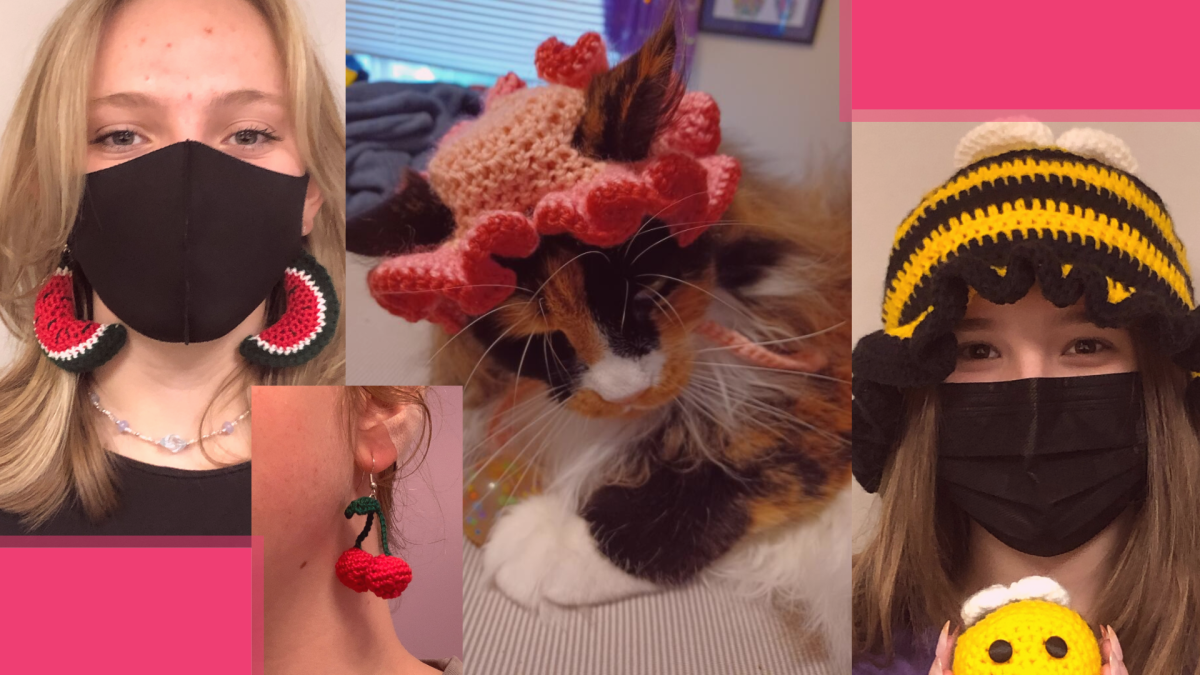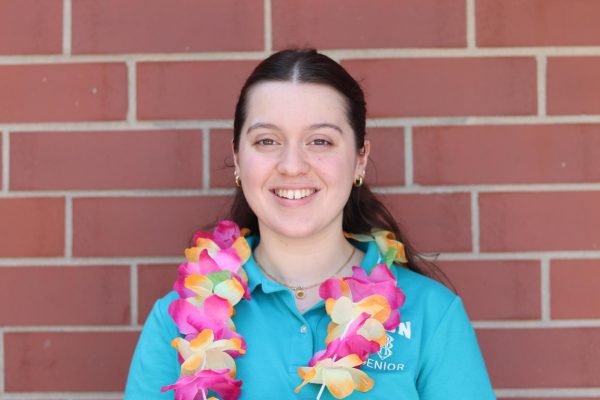The lockdown during the COVID-19 pandemic caused closures of offices, colleges and schools, meaning a lot more free time for people to try new hobbies. However, most of them gave up on those hobbies once lockdowns were over.
Senior Gracie Orf, though, has continued crocheting to this day.
“I was kind of looking for a knitting alternative because knitting is a quite a great deal harder than crocheting,” Orf said. “It was also popular at the time. So I was like, ‘this seems cool, let’s give it a try.’ And now it rules my life.”
Orf spends a large portion of her free time on various yarn creations such as bags, stuffed animals and hats.
“Years ago they were doing those sunflower bags,” Orf said. “That was the first thing I ever made and it was terrible. It was very loose, the tension was bad, there were holes in it.”
In crochet, tension is what keeps things uniform, with only small holes in the pattern. It’s common for first-time crocheters have trouble with this, meaning their first creations will end up with uneven holes in the middle of the piece.
“I thought it was great at the time,” Orf said. “But now I have it, and every once in a while I look at it with dread because it’s terrible.”
According to Orf, a large part of getting better at crochet is learning through practice.
“I sell my stuff. So I make [a prototype] before I make one that I want to use for selling purposes, because the first time I make something it’s always going to be bad,” Orf said. “It’s going to be uneven, it’s not going to be perfect. So I make something once and then I make it again and the second time is better and faster. Then I’m able to do things quicker over time and with more skill.”
Although the majority of the products Orf sells now are crochet, she actually started her business by selling handmade masks.
“They were very pizzazzy and sassy. And people were like, ‘oh, I want one like that.’ So I started making them for other people,” Orf said. “From there I was like, ‘if I can make masks and sell them, then I have all these other skills. I can use those too.'”
Orf was one of the first students to participate in a student marketplace at Sion. She says it’s been interesting to watch more and more students start their own businesses.
“There were maybe five people [at first] and now we’re fighting to have like 10,015 different people doing things,” Orf said. “And it’s really interesting and really cool to see other people realize that their skills also have value.”



